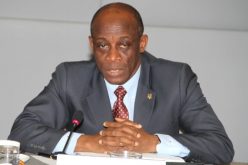Anglican Communion News Service. London – Men and women in the Church must work together to address the global issue of violence in the home. This is a theme that runs through the International Anglican Family Network’s latest newsletter Church Responses to Domestic Abuse. The newsletter has been published today to coincide with the start of the 16 Days of Activism against Violence against Women.
‘Men as well as women are vital in this struggle for justice’, said International Anglican Family Network (IAFN) Secretary Dr Sally Thompson. ‘Our latest newsletter gathers stories from Australia, Africa, Brazil, Guyana, Melanesia and the UK which show how men – and boys on the way to manhood – can be encouraged to understand and work against the abuse which can make marriage “an endurance club” rather than a sacred institution based on mutual respect.
‘The effect of domestic violence on the children who are themselves abused or are witnesses to violence is incalculable. Belatedly, the Church in many parts of the world is becoming aware of the problems which exist even within its own communities, and which for too long have taken place behind closed doors.’
Church Responses to Domestic Abuse documents stories and models of good practice that reveal both the scope and international extent of abuse in the home and the increasing efforts now being made by churches and faith organisations to end and prevent it.
The four religious orders of the Anglican Church of Melanesia – the Sisters of the Church, the Melanesian Sisters, the Society of St Francis and the Melanesian Brotherhood – have for several years been providing shelter and care to abused women and children in the Solomon Islands and running awareness workshops in towns and villages. Now they have developed a new programme Men wea waka for men for stopem Violence. This involves a Male Advocacy team specifically working with perpetrators of abuse, who are mostly men. Volunteers from the religious orders, parish laity, and officers from the local police force advocate against domestic violence and enable men to speak to and train other men on non-violent management of family affairs. According to Anglican Church of Melanesia’s Women’s Desk Officer Ethel George, it has opened up great opportunities for teaching, awareness, counselling and healing throughout the Province.
Realising that men are unprepared for the changing roles of the women in their lives, the Family Life Commission of the Anglican Diocese of Guyana in the Church in the Province of the West Indies has instigated a programme to reach men and boys. Partnered by the United Nations Population Fund (UNFPA), the Commission engaged first in sensitising senior clergy and then moved to a focus on the critical issues of sexual and reproductive health, and gender-based violence for youth and men. UNFPA trained members of the main men’s organisation in the Diocese, the Brotherhood of St Andrew, to facilitate workshops for men and boys on non-violent conflict resolution within families. A programme has been launched called Manup, which gives boys information to help them move smoothly into manhood with greater understanding of their positive roles and responsibilities as family members.
The Zambia Anglican Council in partnership with the mission agency Us (formerly USPG) set up a programme that included the training of 33 church and community leaders across the country in the facts of gender-based violence and in supporting community action against violence. The programme’s radio and TV awareness campaign is thought to have reached thousands, not only in Zambia, but also in the Democratic Republic of Congo, Malawi, Mozambique and Zimbabwe.
Mandy Marshall, co-Director of the Christian Alliance Restored, reminds readers that the Church cannot ignore the issue of violence within its own congregations and draws attention to Restored’s new campaign In Churches Too. ‘Domestic abuse goes to the heart of relationships, distorting all that is good’, she writes. ‘It is vital that women and men in the Church stand up together to address this issue. The heart of the gospel is about love and the laying down of power. As we model what this looks like, and take this issue seriously, then the Church can offer hope, both to its own members and to the wider community.’









